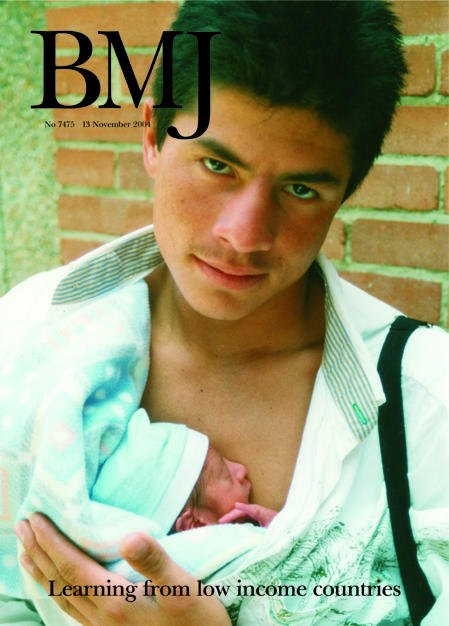Figure 1.

Editor—The study reported by Samavat and Modell showed the effectiveness of screening before antenatal care.1 In Britain, Asian Muslims are at high risk of the β thalassaemia trait, and many marriages are still arranged. In the 1980s, I was part of a team that showed that screening for β thalassaemia trait among Asian Muslim schoolchildren in north Manchester was acceptable to all parents; that most parents intended to arrange marriages for their children; that among those who were arranging marriages, almost all would change the arranged marriage if both partners had the trait; and that termination was acceptable to almost all parents if there was an antenatal diagnosis of β thalassaemia.2
As a result a screening programme for β thalassaemia trait was introduced in north Manchester, although it was stopped in the 1990s, after I left, as it was not considered evidence based. The Iranian study is reassuring in providing evidence. It supports the introduction of screening for β thalassaemia trait for Bury schoolchildren earlier this year.
Competing interests: None declared.
References
- 1.Samavat A, Modell B. Iranian national thalassaemia screening programme. BMJ 2004;329: 1134-7. (13 November.) [DOI] [PMC free article] [PubMed] [Google Scholar]
- 2.Elton PJ, Baloch K, Evans DIK. The value of screening for beta thalassaemia trait amongst Asian Muslim schoolchildren. J Reprod Inf Psychol 1989;7: 51-3. [Google Scholar]


